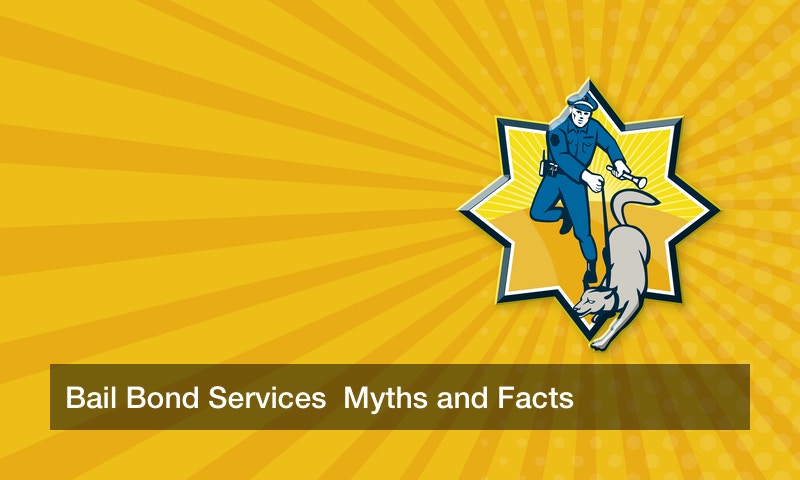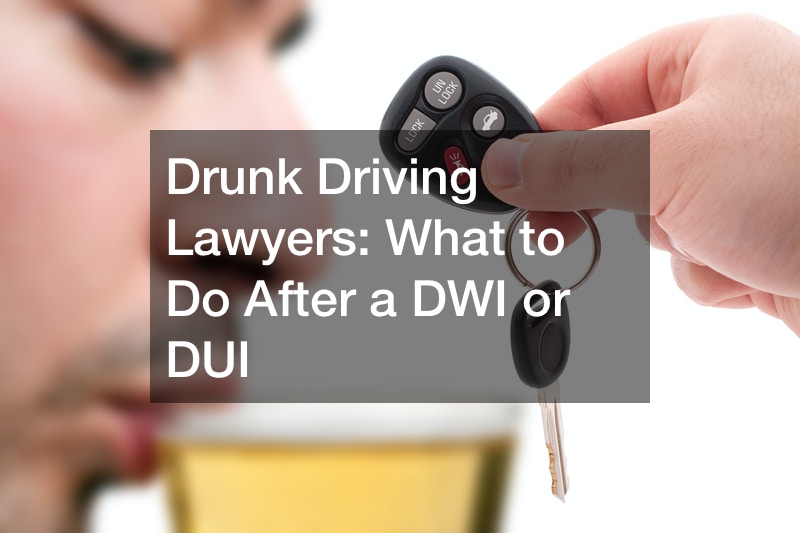
The last thing on your mind was being arrested and caught up in the criminal justice system. It can be expensive and scary. Being held in a jail cell until your trial start date is also not a good thing, as many people would have their lives turned upside down by being required to stay in jail for extended periods. Sometimes the court will allow a person to be released from jail on bail custody.
For example, let’s say you’re arrested for common assault. The bail decision is made at what stage of the legal process is most appropriate based on local rules. The hearing that takes place for the bail decision always happens before the trial date.
The bail conditions for common assault might include things like being restricted to a curfew, having no contact with the other parties in the case, not consuming alcohol or drugs, or being made to wear an ankle bracelet. You can be let out either on bail cash or bond. Bail cash means you provided the funds in certified funds as ordered by the court. Bail bond means you agreed with a bail agent for them to take any penalties on your behalf, and you finance the rest of the balance of your bail bond fee with the bail agent.
UPDATED 1/21/21
Thanks to the Eighth Amendment, criminal defendants are given the right to a reasonable bail, as well as not to be subjected to cruel or unusual punishments. Not everyone who finds themselves on the wrong side of the law has the financial resources they need to bail themselves out, however.
That’s where these facts about bail bond services come in. With bail bonds, defendants can conveniently get the money they need for bail so they can spend time with their families while they await trial.
But like every other profession, the bail bonds industry is plagued by misconceptions. Myths and facts about bail bonds and agents are easily confused, often as a result of the negative portrayal of movies and TV shows. To some people, bail bonds agents are thought to be corrupt individuals with shady deals and questionable associations with the criminal world.
Fortunately for the many people who rely on bail bonds services, these ideas are far from being the facts about bail. However, the lies and uncertainty surrounding federal bail bonds can make it difficult for genuine bond agents to help defendants when they need to post bail. And for some people, a bail bonds agent is the only chance they have at avoiding uncomfortable, isolated jail time while they await a delayed trial.
In this article, we will look at some facts about bail bonds, as well as the myths that people commonly believe about the industry.

What is bail? Have you ever heard of a bail bondsman? When a criminal suspect wants to secure freedom before the beginning of the trial, money is referred to as bail.
Many people do not understand cash bail vs bond. Bond is, however, an agreement which a criminal gets into to appear in court for trial and at times pay an amount of money ordered by the court.
In case the suspect cannot pay the money, a bond agency comes in where the suspect pays a fee, which then makes the agency give a percentage of the bail in the form of a bond. A cash bondsman is a representative of the agency and works independently.
The roles of a bail bondsman include bond assessment. To complete the court bail procedure on behalf of the defendant, an evaluation is conducted on the defendant and, in some cases, the representative qualification for the bond.
Before granting the suspect the court ordered bonds, the agent researches the defendant’s background to determine the chances of flight risk and appearance in court.
The agent also assesses to determine the suspect’s ability to pay the bond fee and the financial implications in case of failure to appear in court after assessment follows paperwork, which formally executes the bond granting the suspect released from jail.
How Bail Bond Services Operate
Reports of fraudulent dealings by individuals pretending to be genuine bail bonds agents, extorting money from vulnerable people, have strengthened common misconceptions about the industry. In reality, bail bonds agents are hardworking individuals committed to helping defendants get bail services, regardless of their economic status. Like any other business, bonds agents offer their services for profits as a way to support themselves and their families. Although the industry has its rogue operatives, like any other, most agents are licensed and operating within the legal framework. In addition to having licenses to work, bail bonds agents must meet particular education requirements and go through extensive background checks before they can offer services.
Most bail bond services are found in the United States, as most countries in the world don’t have or don’t allow bail bonds agents. A bail agency will work with the judicial system to ensure obedience to court, often reminding defendants when court appearances are due. This service helps reduce congestion in prisons and saves the government hundreds of thousands of dollars that would otherwise be used to monitor defendants. Not only that, but it allows defendants to continue working so they can raise money for their defense and for taking care of their families.
The bail bonds industry as it exists in the United States started with a family business in California, in the late 1800s. The industry has grown dramatically since then, with more than 14,000 bail bonds agents in business across the country.
How Bail Bond Services Fit Into the Legal Ecosystem
In order to debunk the myths and expose the facts about bail bonds, it’s important to understand the role of agents in the legal field. Bail bonds agents can be either an individual or a corporation that places bail on a defendant’s behalf. This way defendants who can’t raise the full bail amount themselves can hire a bail bond company or agent to pay it for them. The bond agent also agrees to take the penalty if the defendant fails to appear in court when it’s time.

Since bail bond agents are assuming considerable risk for the defendant, they are compensated with money paid by the defendant, and may have collateral attached such as property.
To ensure their clients show up in court on the stipulated dates, good bail bonds agents make sure their defendant knows about all the proceedings that are involved in their particular case. They will often maintain constant communication with the defendant. This can be helpful to the client, as some court cases drag on for years.
Contrary to what you might expect, most defendants are eager to honor their agreement with bail bonds agents. In fact, it’s been shown that defendants released on bail bonds are more likely to appear in court than those released on personal bonds. If a defendant doesn’t appear in court as ordered, the bail agent is allowed to bring the defendant to court personally, or to hire a bounty hunter to find them. If this happens, any collateral attached to the bond will be seized by the agent to compensate for the cost of forfeiture fees.
You now understand where bail bonds agents came from, and how they fit into the overall legal landscape. Next, we’ll discuss some common misconceptions about the bail bonds industry, and share some facts about bail that you might not have known before.
Myth: Bail Bonds Agents Can Negotiate Bail Costs
Contrary to what most people believe, bail bonds agents cannot negotiate bail costs. The cost of bail will be determined by the court, taking into consideration things like any criminal history of the accused, their employment status and financial situation, and the severity of the crime committed. Bail bonds agents aren’t involved in pricing bail, so they do not influence what bail costs defendants.
Myth: Bail Bonds Agents Help Release Dangerous Criminals
One of the more damaging myths surrounding the bail bonds industry is that agents aid in the release of notorious criminals. But once again, the facts about bail are much different. The court determines who receives bail and who doesn’t, based on the nature of the crime committed and the level of risk posed to society by the accused. Bail bonds are a convenient way for defendants to rejoin their friends and family and continue working at their job while they await the court hearing. But they are only available to people whom the court has deemed safe for bail. These are typically individuals who’ve committed minor crimes, such as traffic violations. But bail bond companies recognize that everyone is innocent until proven guilty, providing their services to anyone considered eligible for bail by the court.

Myth: Agents Always Charge a 10% Non-Negotiable Fee
Contrary to what some might believe, there’s no “flat rate” for bail bond service fees, although fees are most commonly between 10% and 15% of the total cost of bail. The precise percentage is typically decided and imposed upon bonds agents by the cities or counties they operate in. Depending on the situation and the bond service, there may be other charges in addition to the non-negotiable fee. If the cost of bail is especially high, the bonds agent may hold some of the defendant’s assets as collateral. While these assets will be returned to the defendant after they appear in court as required, it’s important to note that the non-negotiable fee is not refundable. Like the legal fees paid to a criminal law attorney, this is simply the service charge for making the bond services available to the defendant in the first place.
Myth: Agents Charge Further Fees or Multiple Unexpected Fees
A closely related myths is the idea that bail bonds agents charge further fees, or a certain percentage of all fees paid, once the accused appears in court. Once again, however, this is false: after the defendant appears for all required court dates, and as long as there have been no other issues such as forfeitures or bond reinstatements, then no other fees are charged by the agent. Unlike what you might have seen on TV, a real bail bonds agent will also not “pile on” fees unexpectedly as time goes by.
Myth: The Bail Bond Industry is Not Regulated
Because of the sometimes shady depiction of bail bonds in media, it might be easy to assume that the bail bond industry is unregulated. But as mentioned earlier, bail bonds agents and companies are subject to federal and state regulations. In addition to being properly licensed, agents must meet particular age, education, and training requirements before they can offer bonds. In some states, a bail bond agreement must be passed through a department of insurance to be certified and credited.
Myth: Bail Bonds Agents Handle Shady Deals
Once again, facts about bail bonds agents are confused by what may be a general mistrust of the profession. Although agents may be portrayed as the bad guys in films, raiding homes, or defrauding their victims, the reality is far less dramatic or sinister. Bail bonds agents and companies are a very important part of the justice system in the United States, not only helping defendants who can’t always afford bail money, but also saving money and time for people working in law enforcement.
Myth: Bail Bonds Agents Only Accept Payment in Cash
, indeed, bail bonds agents are most often paid using cash, but it’s not because that’s the only payment method they accept. Credit cards, wireless transfers, and money orders are also acceptable means of payment for most bail bond services. Many agents will even offer payment plans to their clients whose families cannot earn the full amount right away, allowing families to get their loved ones back home sooner.
Myth: All Money to Bonds Agents Has to be Paid Up-Front
As already mentioned, a bondsman service will often allow their clients to pay for services over time through installment plans. This means that, not only would you not have to pay the entire bail fee, but you could also pay the fee to the bonds agent in installments, thus avoiding any financial hardship. Installment plans usually don’t last longer than 15 months, but for most people, that’s more than enough time to easily pay their bail bonds agent back. Bail bond companies will often with the defendant or their family to determine the most suitable payment options for their economic situation.

Myth: All Bail Bonds Agents are Bounty Hunters
For some reason, bail bonds agents are easily confused with bounty hunters. Bounty hunting involves tracking down and capturing criminals and fugitives from the law in exchange for a reward, and you need a license to be one. While some bonds agents do possess fugitive recovery or bounty hunter licenses, many of them do not. However, any bonds agent will enlist the services of a professional bounty hunter if their client doesn’t show up on required court dates.
These are some of the most important myths and facts about bail bonds that every defendant should know about. Next, we’ll discuss how you can go about finding the right bail bonds agent when you need one.
How to Find the Right Bail Bonds Agent
Despite the strides bail bonds agents and agencies have made towards creating a positive image of their profession, there will always be a handful of unscrupulous people trying to take advantage of those at their lowest point. Unfortunately, people looking for a bail bond agency are typically at their lowest point, as they’re already stressed about their loved one being arrested. This makes them vulnerable to deception, which some would take advantage of.
No matter how stressed out you feel when you start looking for a bail bonds agent, don’t settle for the first one you find without doing some research.
The first thing you should look into is the experience of a bonds agent. The more experience they’ve had in the industry, the higher their reliability should be. A newer agent might not yet have the expertise they need to handle more complicated bonds.

Next you should think about the availability of the bonds agent you’re considering. A 24 hour bail bond agency would be your best bet, as you should find an agent who can answer questions for you whenever you have them. You might need information down the road that only the bonds agent can provide, so you’ll need to be able to get in touch with them at any time. Find out how you can reach them once you’re working together. If the agent seems to be withholding certain facts about bail bonds or their organization, you should probably look somewhere else.

It might not occur to you that you can look up online reviews for bond agencies, just like lawyers and local businesses. But you can, and you should. A good agent or agency should have positive ratings on business review websites. However, if an agent has several hundred reviews, or if their reviews seem too positive to be realistic, you might reconsider working with them. It’s possible that they paid for some or all of their reviews to make their listing look better, or perhaps to balance out negative reviews they received in the past.
Finally, you should also pay attention to how you feel working with an agent. While you may be nervous and upset about your loved one being arrested, try to separate these feelings from the experience of dealing with the bonds agency itself. They should be compassionate, not judgmental or rude. If you sense any negativity coming from an agent or agency, keep looking.
Now that you know the difference between the myths and facts about bail bonds, you should be prepared to make a wise choice if you ever need them for yourself or a loved one.




